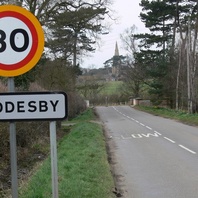
Viking Names
Gaddesby
Gaddesby, in the East Goscote Hundred of Leicestershire, is a Scandinavian compound from the Old Norse male personal name Gaddr, which is an original byname from Old Norse gaddr ‘a goad, a spur’, and Old Norse element by ‘a farmstead, a village’. Alternatively it has been suggested that the first element is Modern English gaddr transferred topographically to the ‘spur of land’ on which the settlement is located. However, it is difficult to conceive the escarpment in which the village sits on as a hill-spur.
Read More
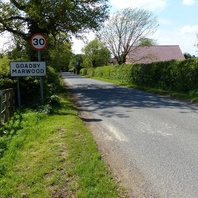
Viking Names
Goadby Marwood
The first element of Goadby Marwood, in the Framland Hundred of Leicestershire, comes from the Old Norse male personal name Gauti (genitive singular Gauta), which is either a short form of names in Gaut- or is derived from an original byname meaning ‘a man from Gautland’. The second element of the place-name is the Old Norse element by ‘a farmstead, a village’. The affix Marwood is the family name of Gaufridus Maureward who held the manor in 1247. The manor remained in the family until at least 1428. The affix Marwood distinguishes the township from Goadby, in the Gartree Hundred of Leicestershire.
Read More
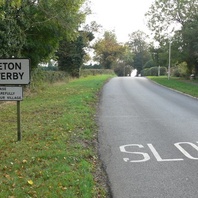
Viking Names
Smeeton Westerby
Smeeton Westerby, in the Gartree Hundred of Leicestershire, was originally two separate settlements. The earlier settlement is Smeeton which comes from Old English smið ‘smith, a worker in metal’ and Old English tun ‘an enclosure; a farmstead; a village; an estate’. The later settlement, Westerby, is a Scandinavian compound from Old Norse vestr ‘west, westerly’ and Old Norse by ‘a farmstead, a village’. Westerby is presumably an offshoot of Smeeton as the name refers to its location being slightly to the west of Smeeton.
Read More
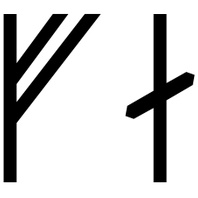
Viking Names
Thorfast
Þorfastr is a common male name in the eastern part of the Viking world – it is common in Swedish runic inscriptions and is even found in the inscription on a rune-stone fragment found in Finland, as well as a couple of Danish ones, but it does not occur in any Norwegian or Icelandic texts. It can be found in the runic inscription on the Lincoln comb-case.
Read More

Viking Names
Spilsby
The name of Spilsby, in the Bolingbroke Wapentake of Lincolnshire, comes from the Old Norse male byname Spillir and the Old Norse element by ‘farm, settlement’.
Read More
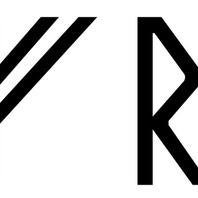
Viking Names
Alfrun
Alfrún was recorded in West Scandinavia (Norway and Iceland) as a mythological name. It is an Old Norse compound formed from the elements Alf- ‘elf’ and –rún ‘confidante’. It has been suggested that when used in a personal name it has the sense of ‘secret, wisdom’, associated with rúnar ‘runes’. There may be one attestation of Alfrún in a medieval church document from Lincolnshire. However, the form may alternatively represent the Old English female personal name, Ælfrūn.
Read More
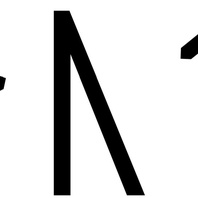
Viking Names
Gaut
Gautr and the related Gauti are short forms of names in Gaut- or -gautr, or an original byname meaning ‘man from Gautland’. This region comprises the provinces now known as Östergötland and Västergötland in southern Sweden, and is the homeland of the Geats in the Old English poem Beowulf. Gautr is recorded in several Swedish and Norwegian runic inscriptions and is also the name of a rune-carver in the Isle of Man. The name appears in two inscriptions there; on the runic cross from Kirk Michael it is (boastfully but erroneously) claimed that ‘Gautr made this and all in Man’.
Read More

Viking Names
Bui
An original byname Búi, from búa ‘to dwell’, was found in Norway and Iceland as a personal name and byname, but is rare there. In the form Bōi, later Bo, it is very common in Denmark and Sweden, where it appears in several runic inscriptions as bui and is found in the Latin forms Boecius and Boetius. It is possibly found in three Normandy place-names and it is potentially the first element in Boothorpe, Leicestershire.
Read More
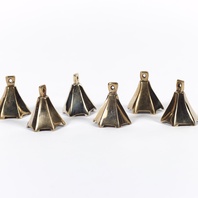
Viking Objects
Reproduction Norse Bells
Bells of this type are described as a ‘Norse’ bell because of their association with Scandinavian sites though not much else is known about their purpose or origin. However, it seems likely that they were used as harness decorations.
Read More
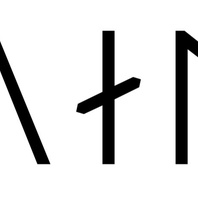
Viking Names
Hroald
Hróaldr was a common name throughout Viking Age Scandinavia, appearing in a few Swedish and Danish runic inscriptions. The name is used in modern Scandinavian today as Roald which was given the famous British children’s author Roald Dahl by his parents who were Norwegian immigrants to Wales. The personal name also appears as the first element in the place-name Rolleston, Nottinghamshire.
Read More
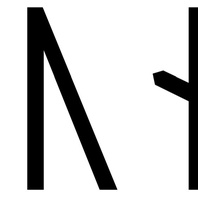
Viking Names
Gunni
Gunni is a short form of Old Norse personal names in Gunn– from Old Norse gunnr, guðr ‘battle’. The personal name is very common throughout areas of the Viking diaspora and occurs in several place-names including three in Normandy. Gunni is also found in Danish and Swedish runic inscriptions. Gunni is the first element in three Lincolnshire place-names: Gunness, Gunby, and Gunthorpe.
